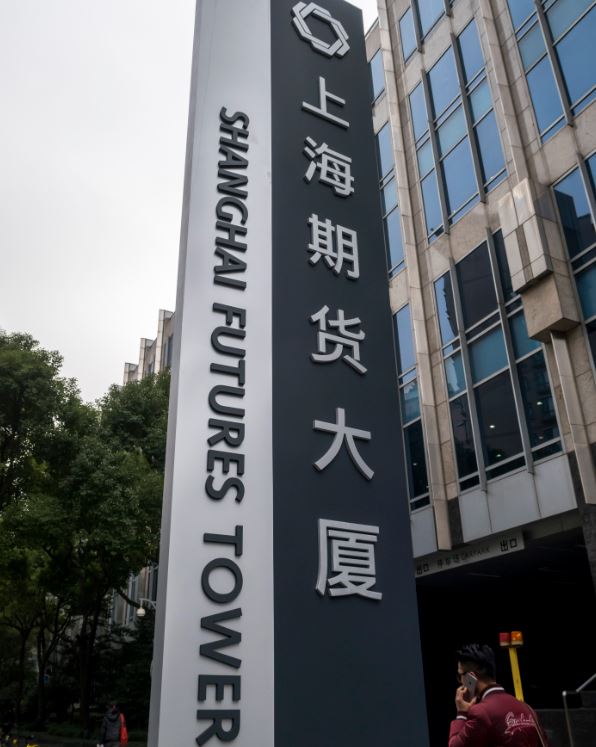Foreign capital to have wider access to futures market


Regulator hopes removal of ownership restrictions will consolidate industry
China's derivatives market is expected to embrace a big round of opening-up this year as the country's policymakers aim to facilitate high-quality development by encouraging greater participation of foreign investors and drawing more long-term institutional capital into the Chinese financial industry.
The futures market became the first sector in the Chinese financial industry in which foreign companies can have full control of their business entities as the country removed ownership restriction on futures companies on Jan 1.
An official at the China Securities Regulatory Commission said the regulator is keen to give foreign investors greater market access in a hope of consolidating and energizing the industry, which is less developed compared with the country's securities and fund industries.
The regulator is expected to issue a revised regulation soon on qualified foreign institutional investors, which will substantially expand their investment scope and allow them to trade in the derivatives market including financial and commodity futures and options.
Meanwhile, more types of commodity futures and options contracts will be made available for overseas investors this year. The Shanghai Futures Exchange will launch the trading of low-sulfur bunker fuel oil futures contracts and container freight index futures contracts this year, which will allow foreign investors to participate in trading. The exchange will also open copper futures trading to foreigners this year.
China has been accelerating the opening of its derivatives market since 2018 when the country launched the trading of crude oil futures contracts and opened it for the first time to foreign investors, a milestone development of the country's futures market. Following crude oil, three more products-iron ore, pure terephthalic acid and technically specified rubber 20 futures contracts-became available to foreigners.
The efforts underscored China's intention to boost its pricing power in the international commodity markets as the country has been a major importer of raw materials and commodities but has had limited pricing influence in the international markets.
The liberalization of the futures market will also help raise the global profile of the Chinese currency as the contracts of commodity futures and options contracts that are open to global investors are denominated in renminbi, or the yuan.
"The opening of the futures market is line with the development of China's international trade. It is also a necessary way to boost the international pricing capability of the Chinese futures market," Fang Xinghai, vice-chairman of the CSRC, said at a derivatives forum recently.
"The trading of both domestic and foreign investors in the futures market will help create a more consistent, transparent and fair market pricing … and the yuan-denominated contracts will help push the internationalization of the renminbi," Fang said.
Fang said the securities regulator will continue to enrich the derivatives market by approving and offering more products to investors at home and abroad this year. In December, two new option products, the gold option and CSI 300 stock index option, debuted in the market and more are expected as the regulator aims to strengthen the functions of the country's commodity and financial derivatives markets to offer companies and investors more tools to manage risks amid a slowing economy.
Wang Wei, director at the market economy research institute of the Development Research Center of the State Council, said promoting the two-way opening of the futures market will allow China to better participate in the allocation of global resources and ensure the national economic security and stable growth while enhancing the country's global competitiveness and pricing influence.
Li Zhengqiang, chairman of the Dalian Commodity Exchange, said the financial industry should serve the economy by providing not only necessary funding but also efficient risk management products and services, which include important tools such as forward contracts, futures and option contracts.
The view was echoed by Xiao Gang, former CSRC chairman and now a national political adviser. He urged the country to fully unleash the risk-hedging function and accelerate the internationalization of the derivatives market, an indispensable part of the country's financial sector.
The development and liberalization of China's derivatives market has been welcomed by global investors who will gain more access to hedging and risk management tools for their exposure in the onshore capital markets.
"I think what is welcome is the continued ability to allow investors to innovate in terms of hedging tools and derivative trading. The expansion of derivatives in the Asian financial markets has been an important step for overseas investors to gain confidence in the ability to access the market in a more liquid fashion," said Kevin Anderson, head of investments for Asia-Pacific at State Street Global Advisors.
Christine Lam, chief executive officer of Citi China, said the US bank Citigroup is seeking opportunities to develop new types of business and obtain new licenses as China will remove foreign ownership restrictions for futures.
"We are interested in this type of business. As foreign investors are increasingly taking part in China's financial markets, our clients' demand for risk hedging and mitigation products such as futures is also on the rise. We look forward to the opportunities to develop new business," Lam said.
Another positive development is that the country's lawmakers are accelerating futures market legislation. The first Futures Law is already in the national legislative process and lawmakers are reviewing the draft.
While China's futures market came into existence in the early 1990s, there has not been an industry law that governs and regulates the sector. Investors are hoping that the first Futures Law can be approved by national lawmakers as soon as possible.
Fang, the CSRC vice-chairman, said the legal process of the futures market has lagged behind the market's fast development.
He noted that China should carefully study the mature legal and regulatory systems in international markets and borrow useful experience and expertise to push the domestic rules and regulation to be consistent with international standards and practice.





































